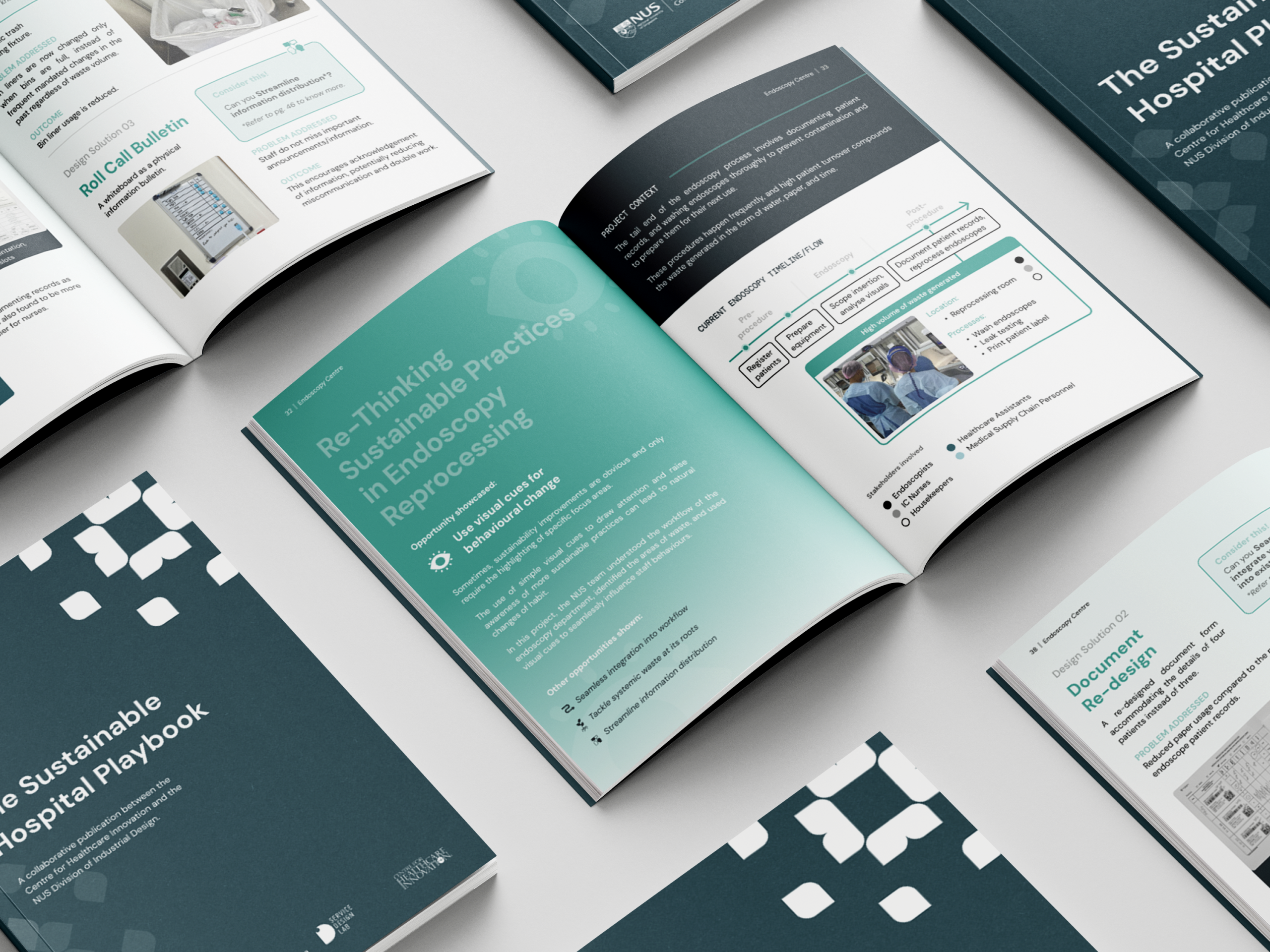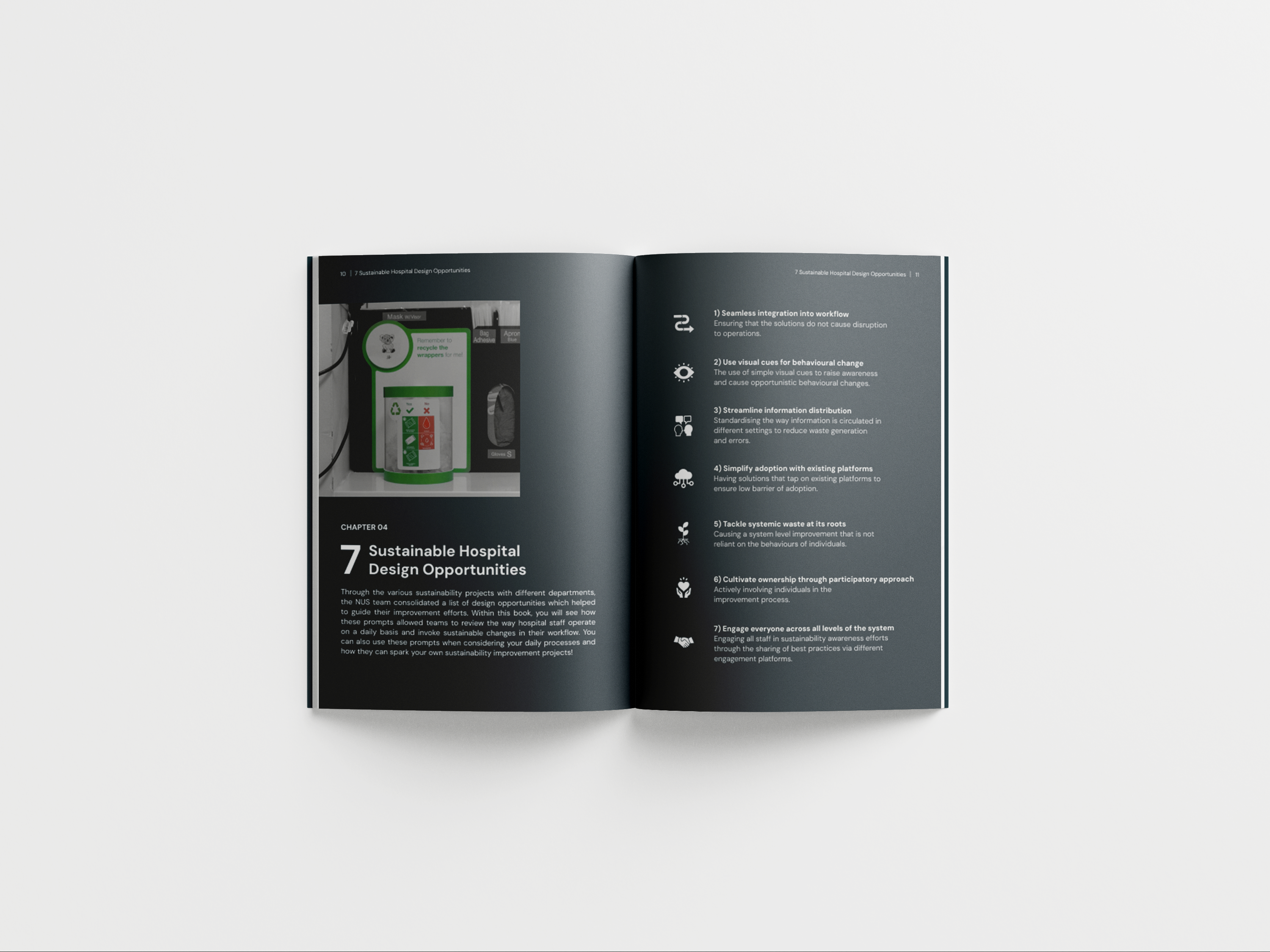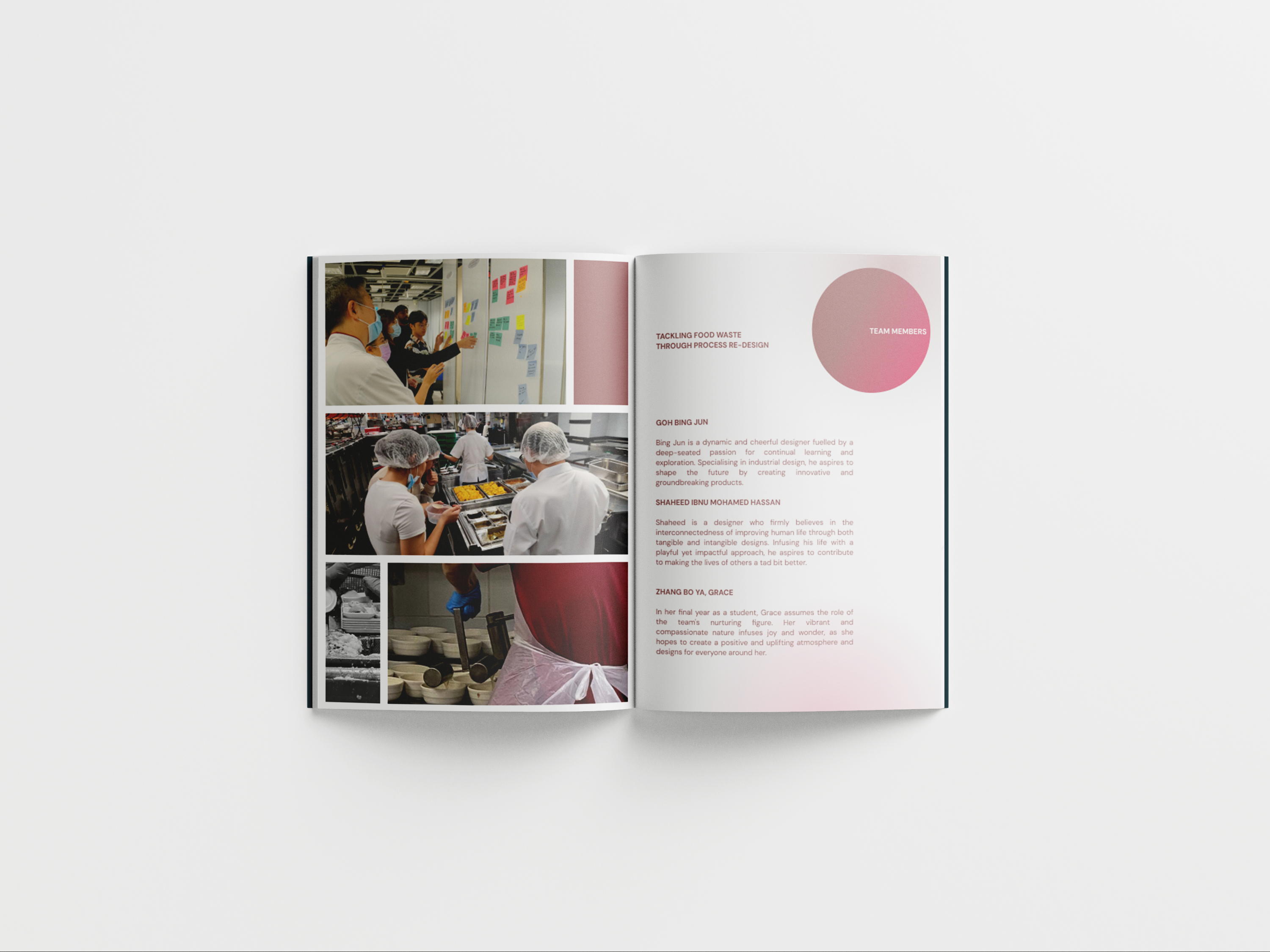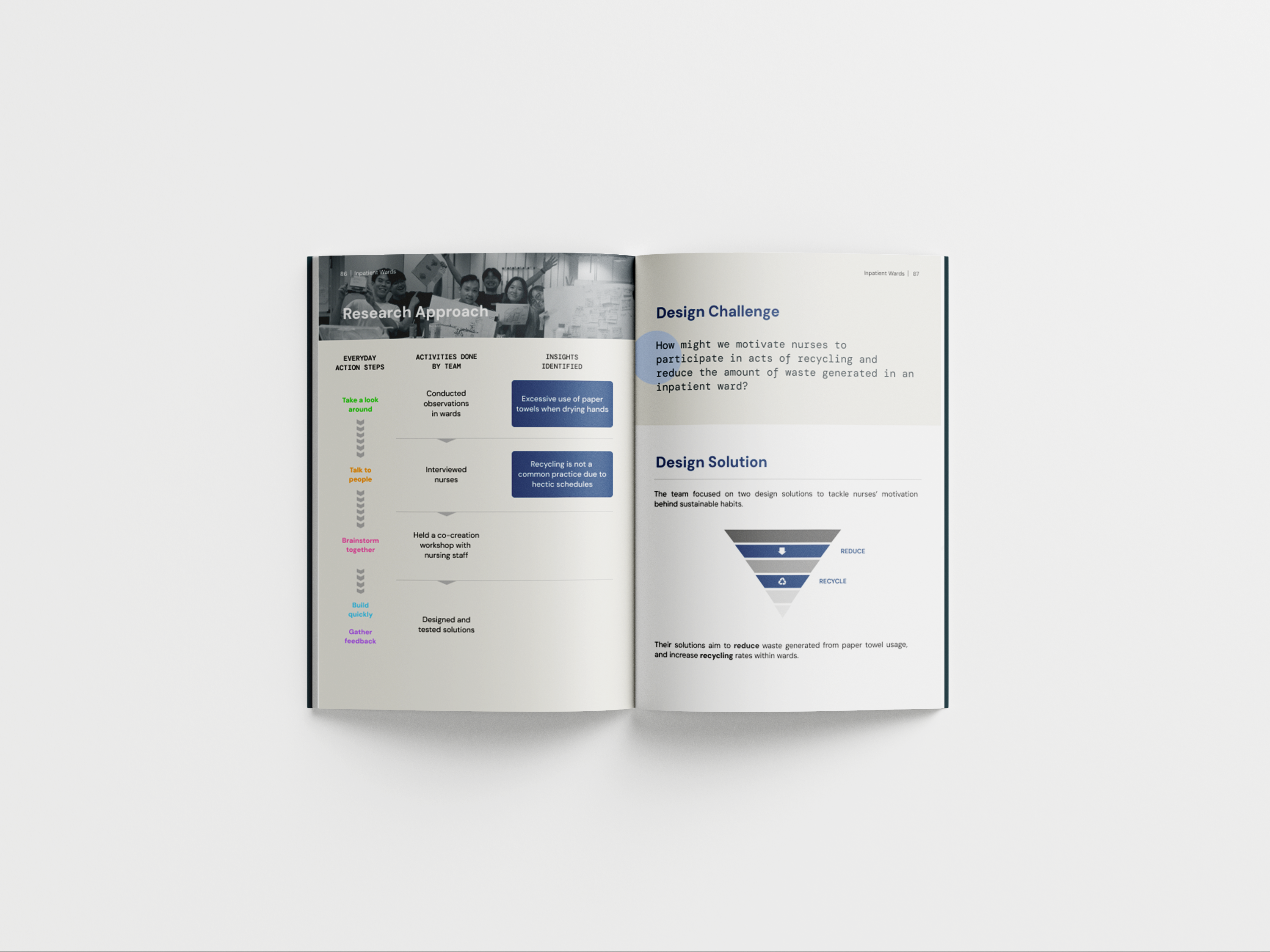RESEARCH IMPACT & COLLABORATIONS
Forging New Frontiers — July Issue 2024
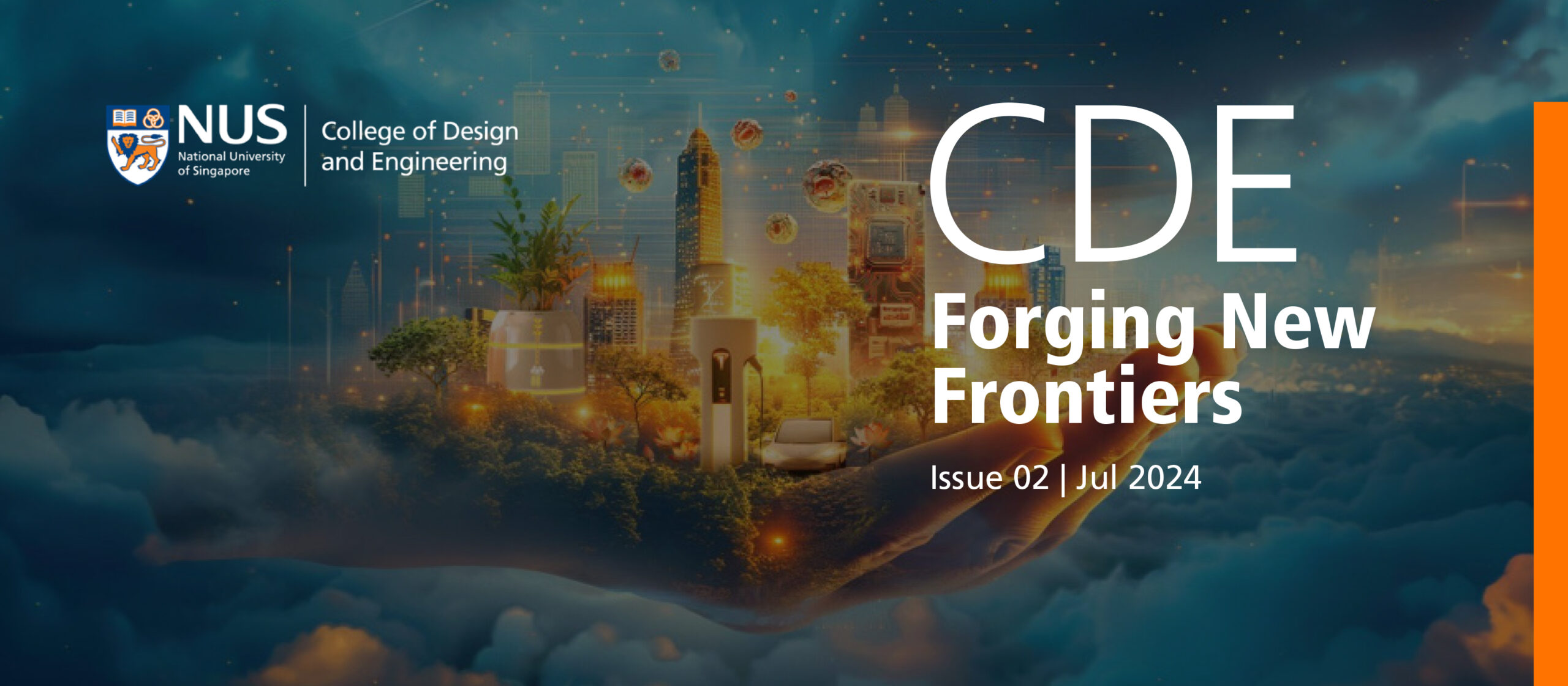
The 2nd edition of the CDE Research Newsletter — Forging New Frontiers was launched in July. The theme of this issue is From Idea to Reality.
At the foundation of this issue is a series of breakthroughs at CDE that form the impetus of real-world technical impact and serve as catalysts towards societal and policy impact. Importantly, these innovations showcase the diversity of fields where our CDE community are driving change, from energy and sustainability to sensors and biomedicine. Read at: https://cde.nus.edu.sg/cde-research-jul2024/
Click Here to subscribe.
CDE faculty at core of NUS hydrogen energy centre
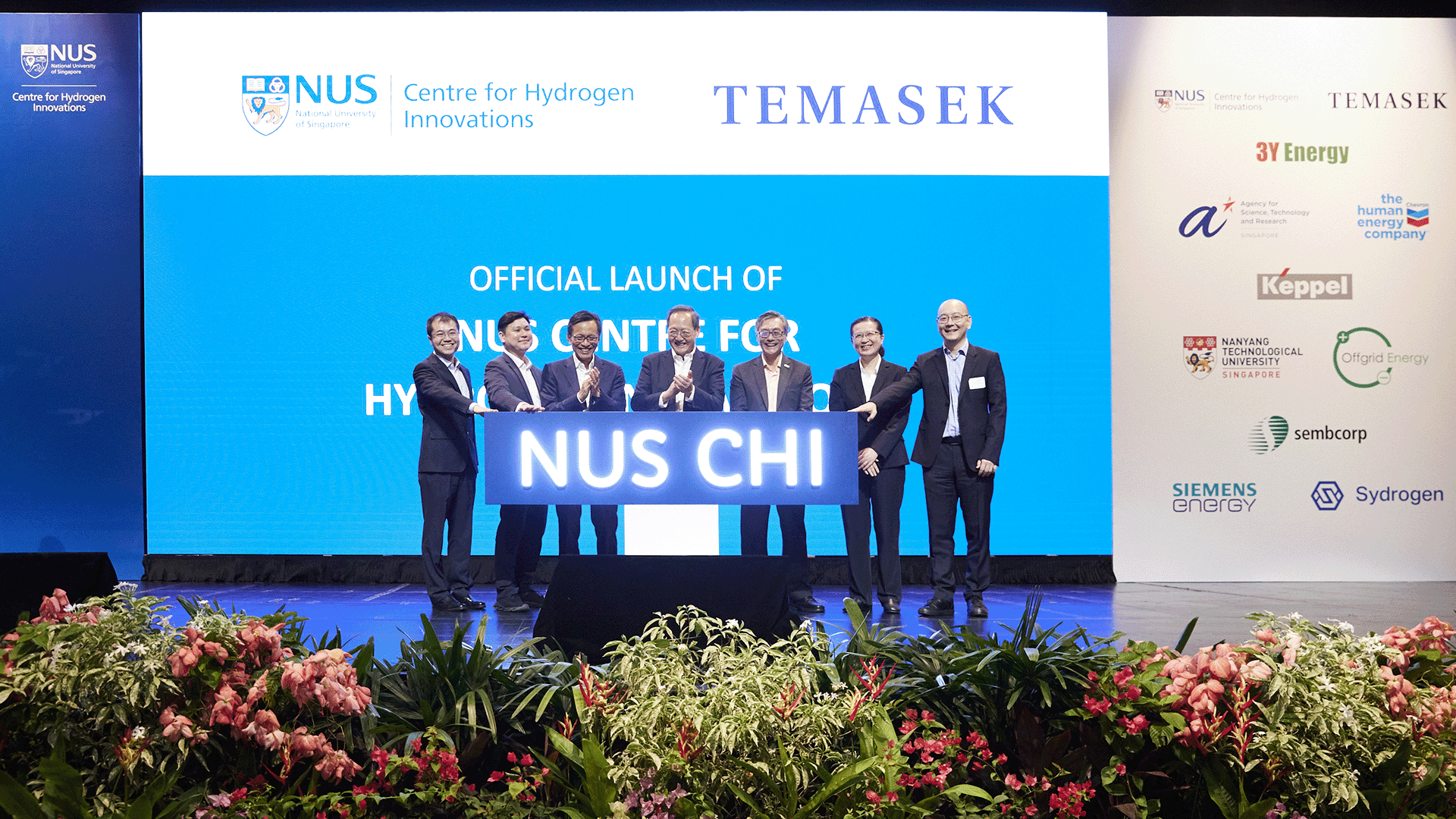
NUS has officially launched the Centre for Hydrogen Innovations (CHI), a pioneering research hub dedicated to hydrogen-based sustainable energy solutions. Led by Professor Yan Ning (Chemical and Biomolecular Engineering) as the Centre’s director, and with 18 other faculty members from CDE among the Centre’s Principal Investigators, CHI is set to advance green hydrogen production, storage, carrier systems, and utilisation.
Dr Tan See Leng, Minister for Manpower and Second Minister for Trade and Industry, officiated the launch ceremony and noted that CHI is positioned to lead hydrogen research and innovation in Southeast Asia.
As part of the ceremony, eight new projects for potential funding were unveiled. These include five projects led by PIs from CDE.
- Assoc Prof Zhao Dan (Chemical and Biomolecular Engineering)
- Asst Prof Wang Lei (Chemical and Biomolecular Engineering
- Prof Antonio Helio Castro Neto (Material Science Engineering / Electrical and Computer Engineering)
- Assoc Prof Yang Wenming (Mechanical Engineering)
- Prof Ho Ghim Wei (Electrical and Computer Engineering)
Read more about CHI and its research here: https://cde.nus.edu.sg/news-detail/cde-faculty-at-core-of-nus-hydrogen-energy-center/
Digital technologies leading the way in ‘Construction 4.0’
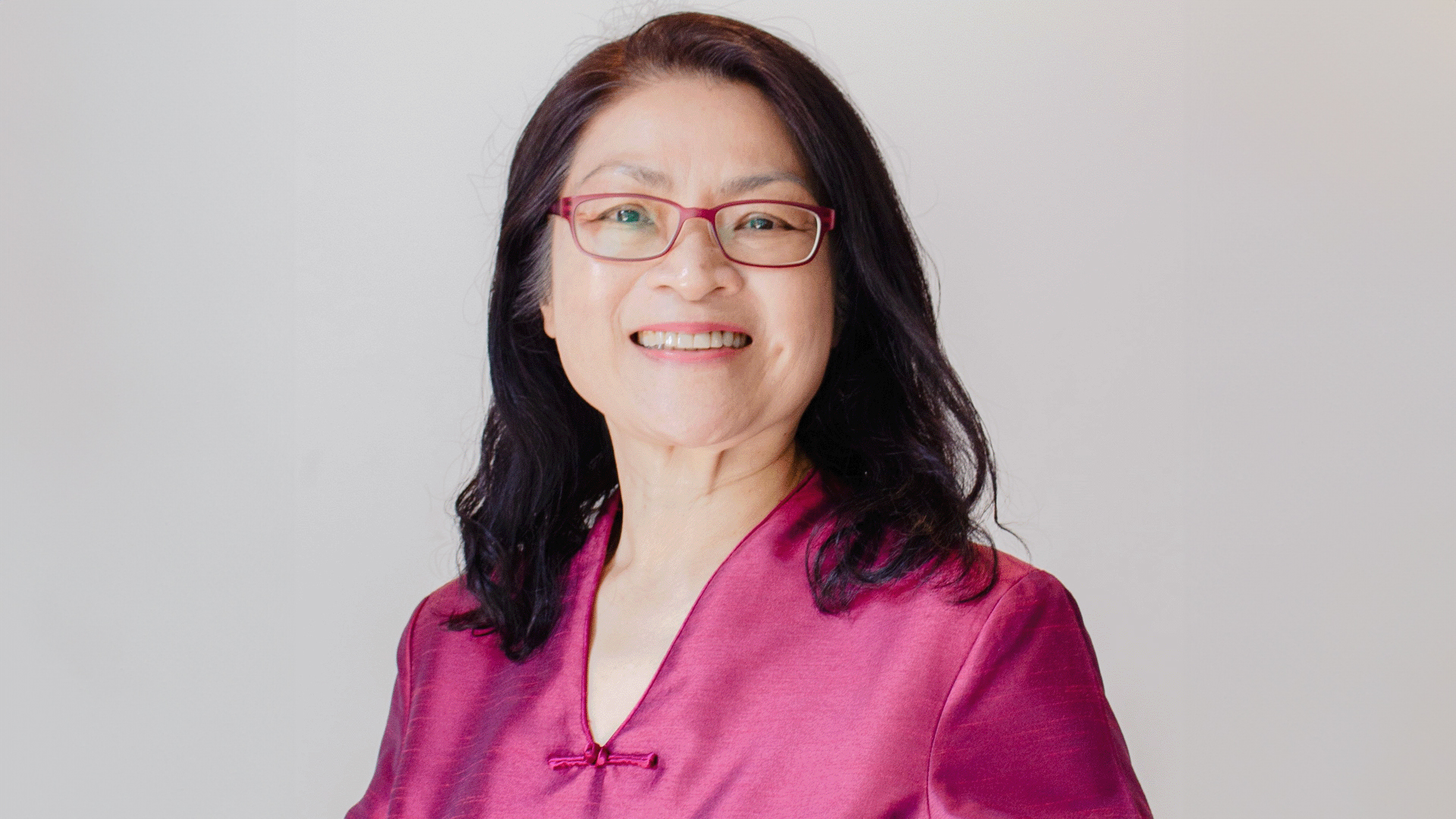
Digital technologies are rapidly reshaping the built environment industry, but how can firms decide which technologies to prioritise? The swift pace of change, coupled with the construction sector’s unique challenges and high operational costs, how can firms pinpoint which innovations are worth the investment and which to be more cautious with?
Prof Florence Y. Y. Ling, one of the few women researchers in a male-dominated industry, has long been interested in ways to help construction firms boost project quality, productivity, tender success, and market reputation.
Since then, she has published more than 170 international refereed journal papers and in one recent co-authored study published in the Journal of Construction Engineering and Management she explored which digital tools truly enhance the performance of architectural, engineering, and construction firms.
In one co-authored study she identifies five ‘super technologies’ that are transforming operations, improving efficiency, and driving innovation.
Read more about what these digital tools are and how firms in the sector can better plan their technology adoption strategy: https://cde.nus.edu.sg/news-detail/digital-technologies-leading-the-way-in-construction-4-0/
Battery-free technology to power devices using ambient radio waves

“The boom in wireless technologies such as Bluetooth, Wi-Fi and 5G means our environment is saturated with wireless signals that represent a significant and useful source of energy.”
Researchers led by Prof Yang Hyunsoo (Electrical and Computer Engineering) have developed an innovative green energy solution that harnesses the untapped energy from ambient wireless radio signals and converts it into DC power.
The team says their technology could potentially power new generations of small devices without batteries. This could be especially impactful for work in remote areas and in biomedical applications, the researchers said.
The researchers published their findings recently in the journal Nature Electronics.
Read more at: https://cde.nus.edu.sg/news-detail/battery-free-technology-to-power-devices-using-ambient-radio-waves/
Publication of The Sustainable Hospital Playbook
Associate Professor Jung-Joo Lee and Service Designer Lucas Cheng (DID Class of 2023) from the Division of Industrial Design’s Service Design Lab, published “The Sustainable Hospital Playbook” in collaboration with Tan Tock Seng Hospital’s Centre for Healthcare Innovation (CHI). CHI is a centre established in 2019 that aims to promote innovation across the public healthcare sector.
This collaboration started as DID’s Design Platform course during AY 23/24 1st Semester, led by Assoc Prof Lee and assisted by Lucas. Seven teams of DID students, comprising 21 undergraduate students in total, worked with Tan Tock Seng Hospital (TTSH) staff from the Endoscopy Centre, Inpatient Wards, Care & Counselling department, Community Health Team and Kitchen to redesign various operations within TTSH with feasible and low-cost solutions to address sustainability from a ground-up perspective.
The primary liaisons from CHI and TTSH were Jia Xiang Chua, Principal Service Designer, Assistant Director (CHI); Keith Lee, Industrial Designer, Senior Executive (CHI) and Cheyenne Lee, Assistant Manager (TTSH). These three staff members were pivotal in establishing the platform brief and design scope. They helped establish partnerships between stakeholders in TTSH and the student design teams. They also gave invaluable guidance, feedback and consultation to student design teams throughout the Design platform course.
"The Sustainable Hospital Playbook" outlines the approaches and opportunities developed by seven teams throughout the Design Platform course. It highlights their design outcomes, the impacts of their proposed interventions, and includes design frameworks and methodologies introduced to the students during the course.
The playbook was the result of months of close collaboration between CHI staff and designers from the Service Design Lab and was unveiled to audience members during the CHI INNOVATE 2024: Sustainability in Healthcare conference held on 4-5 July. CHI presented Minister Grace Fu with a special copy of the playbook made of scraps from TTSH’s 3D printing at the conference. The Minister shared a photo of the special copy of the playbook on Facebook.
The Service Design Lab extends its heartfelt gratitude to all stakeholders, staff, and student designers. They have been instrumental in making 'The Sustainable Hospital Playbook' a reality. We deeply appreciate their contributions to this transformative project.
View the digital publication here.
Incorporating 3D simulators into orthodontic treatments
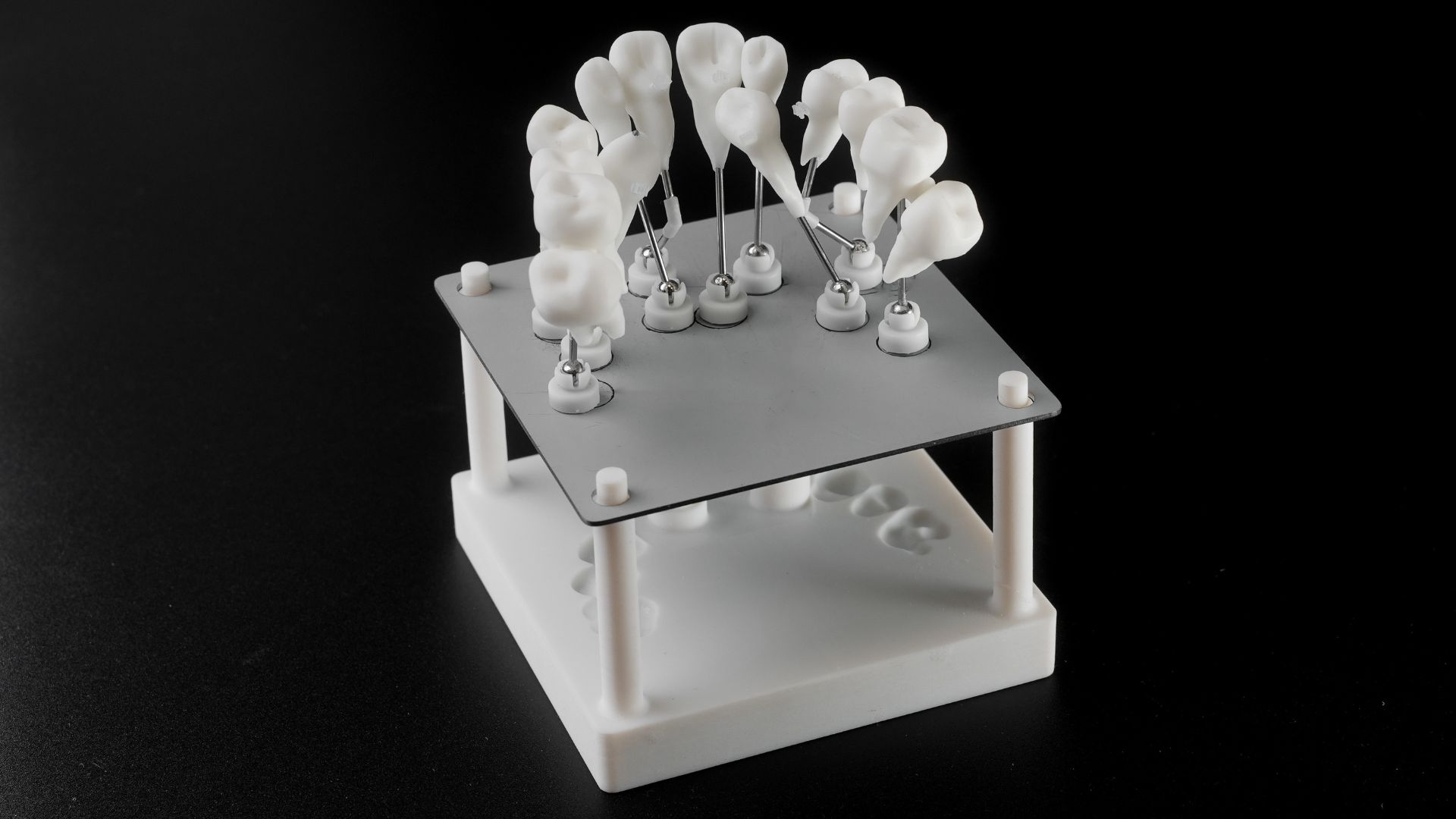
Initiated under the “Design for Dentistry” platform led by Associate Professor Yen Ching-Chiuan (Division of Industrial Design) during the second semester of AY 21/22 2nd, this interdisciplinary project originated from a design concept by DID students Nicole Tan Mu En, Sheryl Yeo and Mane Ananya Umesh in collaboration with Associate Professor Kelvin Foong from the Faculty of Dentistry (FoD).
A collaborative effort between FoD, AM.NUS, and Dr Mark Gan, Associate Director at Centre for Teaching, Learning and Technology, the project evolved through the dedicated efforts of Assoc Prof Yen, Assoc Prof Foong and Dr Cheryl Lai, a Master of Dental Surgery student, with redevelopment by Chen Yun Hsuan (Miffy), then Chong Zi En, Research Engineer at AM.NUS, with further development continuing until April 2024.
FoD provided the problem statement, expert insights and conducted user studies, while AM.NUS conceptualised, prototyped, and realised the 3D training simulator. This innovative approach aims to enhance educational methodologies and practice in orthodontics.
The team's findings were published recently in the journal Seminars in Orthodontics.
Read the research paper here.
3D metal printing technique ‘a game-changer for electronics’
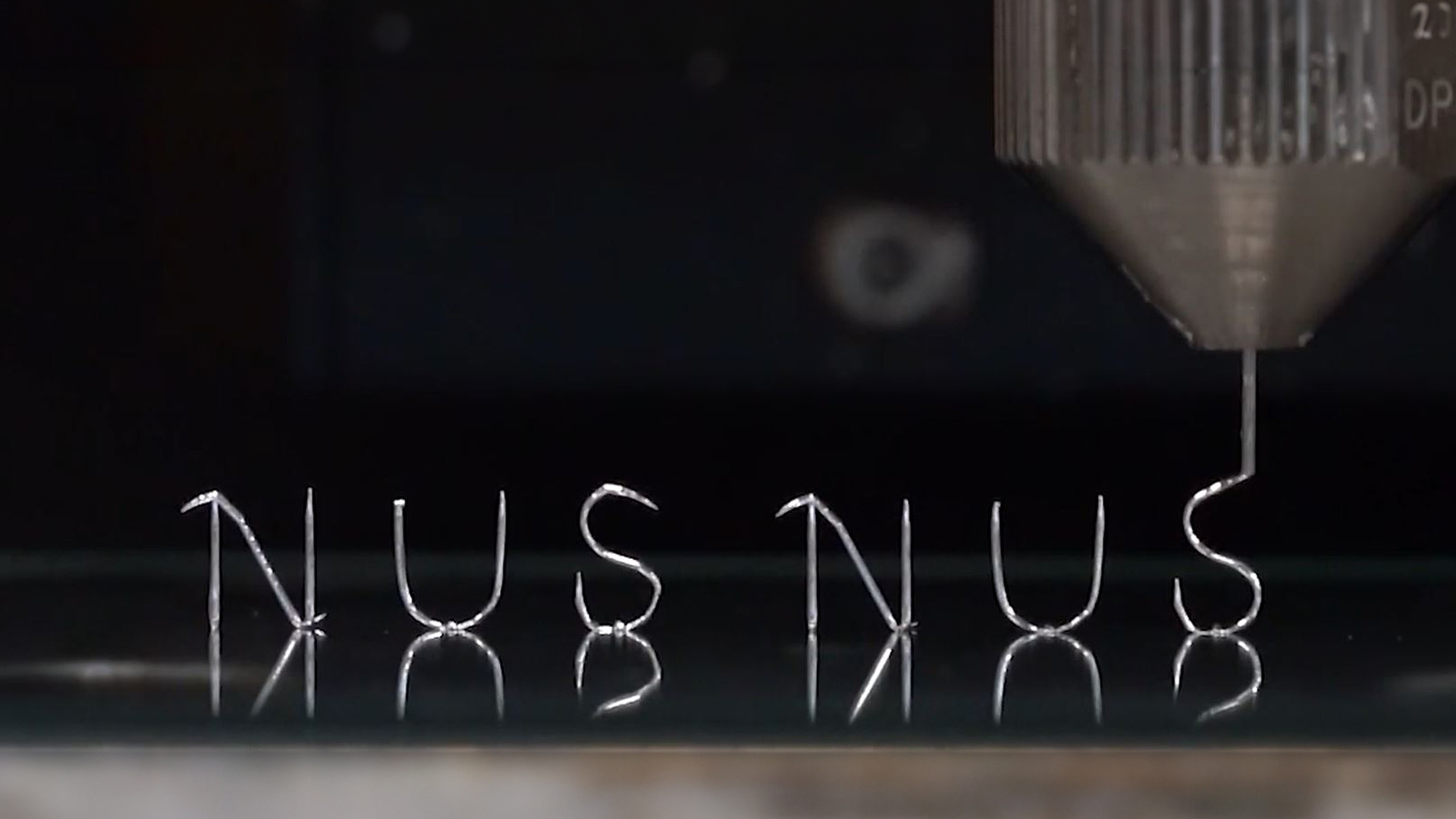
A new 3D metal printing technique that could have a major impact on the development of future electronic devices has been unveiled by researchers at CDE.
Developed by a team led by Assoc Prof Benjamin Tee (Materials Science and Engineering), CHARM3D (conductive high-aspect-ratio metal 3D printing) allows for the creation of highly conductive, self-healing and recyclable 3D circuits. The CHARM3D technique leverages the unique properties of Field’s metal - a unique metal alloy with a low melting point of just 62 Celsius and which solidifies quickly. This allows for faster, more accurate printing without the need for additional support.
The team's findings were published recently in the journal Nature Electronics.
Such circuits are key to the development of more compact and powerful devices such as advanced medical sensors, enhanced communication systems, and improved security technologies.
Discover how CHARM3D is set to change the future of electronics here: https://cde.nus.edu.sg/news-detail/3d-metal-printing-technique-a-game-changer-for-electronics/
Major Grants Awarded
The major grants (start date in July 2024) with total project value > $1M.
| Hosting Unit | Project Title | Funding Programme (Source of Funding) |
Principal Investigator | Co-Investigator |
| MSE | Long-Life Solid-State Batteries By Intelligent Composites With Active Interfaces | NRF Open/General Competitive Research Program (NRF-CRP) – 2023
(NRF) |
Stefan Nikolaus Adams; Canepa Pieremanuele; Chaobin He; Seeram Ramakrishna; Bazan Guillermo Carlos (Chemistry) | |
| MSE | All Antiferromagnetics Magnetic Tunnel Junction For Non-Volatile Memory | Acrf Tier 2 Grant – 2024
(MOE) |
Chen Jingsheng | |
| MSE | Monolithic Spintronic Devices Based On A Magnetic Topological Insulator | Acrf Tier 2 Grant – 2024
(MOE) |
Ahmet Avsar | |
| CEE | Home And Firm Location Choice Models And Platform Development | Cities Of Tomorrow R&D Programme: Urban Environment Analytics And Complexity Science – 2023
(NRF) |
Ong Ghim Ping, Raymond | Heng Chye Kiang; Liu Yang; Prateek Bansal; Sing Tien Foo (Real Estate); Lee Kwan Ok (Real Estate) |
| CFIS | Network Of Experimental Catchments For Understanding Runoff Formation And Flood Risk | Coastal Protection And Flood Management Research Programme (CFRP) – 2024
(NRF) |
Simone Fatichi | Vladan Babovic; Ooi Seng Keat |
| CFIs | Model Development And Quantifications Of Coupled Near-Shore Processes Impacted By Climate Change | Coastal Protection And Flood Management Research Programme (CFRP) – 2024
(NRF) |
Li Yuzhu, Pearl | Koh Chan Ghee; Ooi Seng Keat |
| CFI Singapore | An Integrated Coastal Ecosystem Model (ICEM) To Assess The Environmental Impacts Of Anthropogenic Activities And Climate Change On Hybrid Solutions | Coastal Protection And Flood Management Research Programme (CFRP) – 2024
(NRF) |
Gin Yew-Hoong, Karina | Tong Xuneng (NUS Environmental Research Institute); Kok Wai Kit Jerome (NUS Environmental Research Institute) |



